The Life Interview with Chen Hanwei: King of Channel 8 eyes fifth Best Actor nod at Star Awards
Mediacorp star Chen Hanwei could be on his way to tie with former actor Xie Shaoguang's record five Best Actor wins at Star Awards
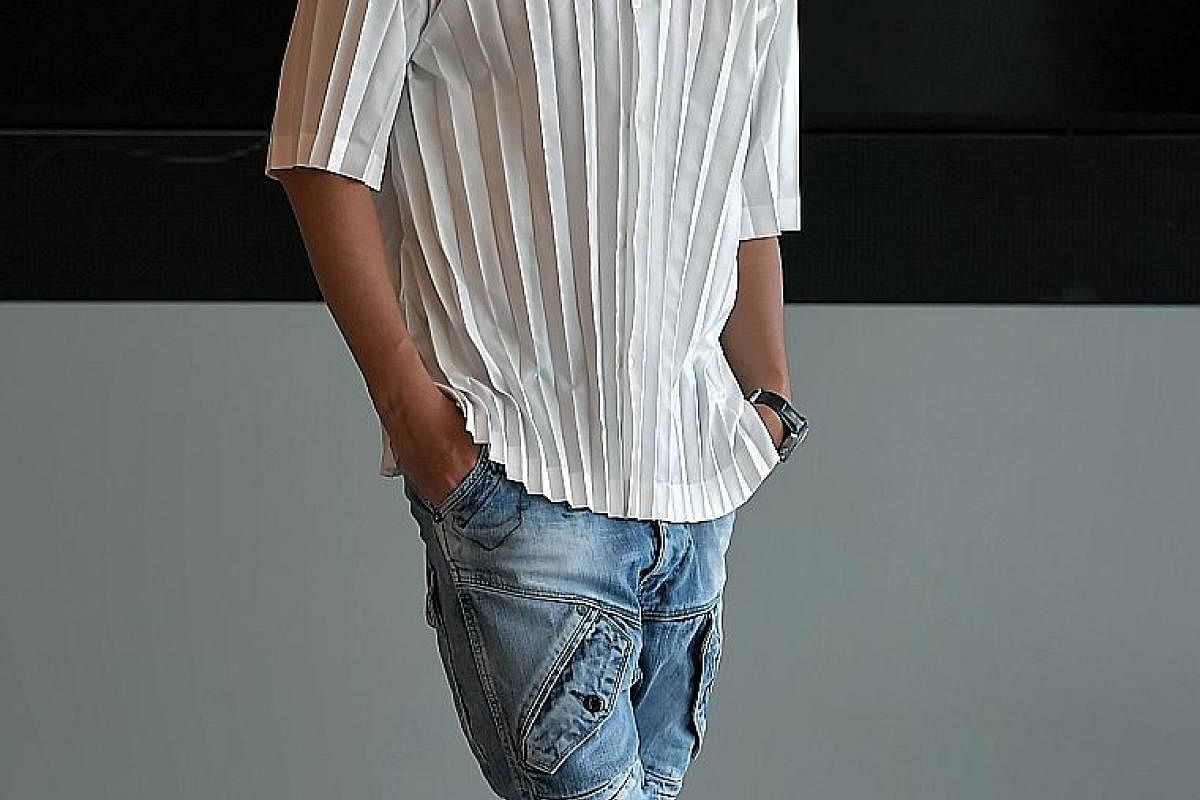
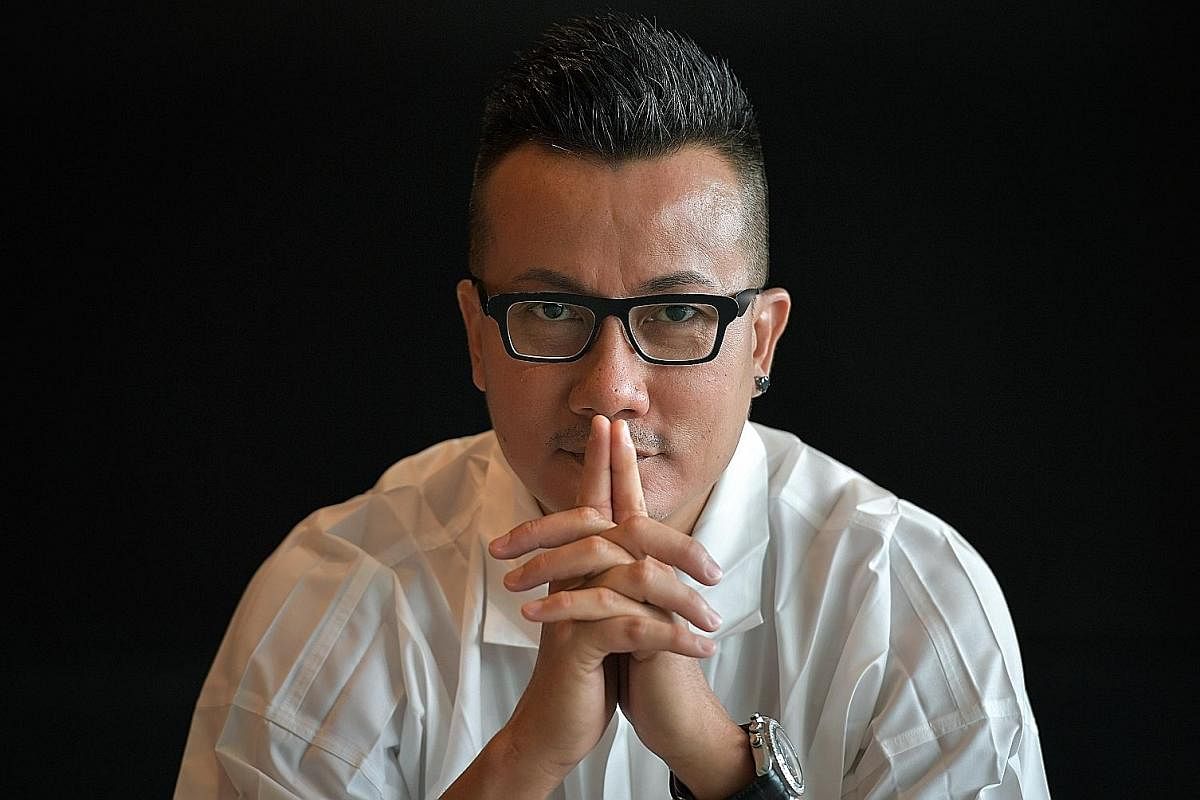
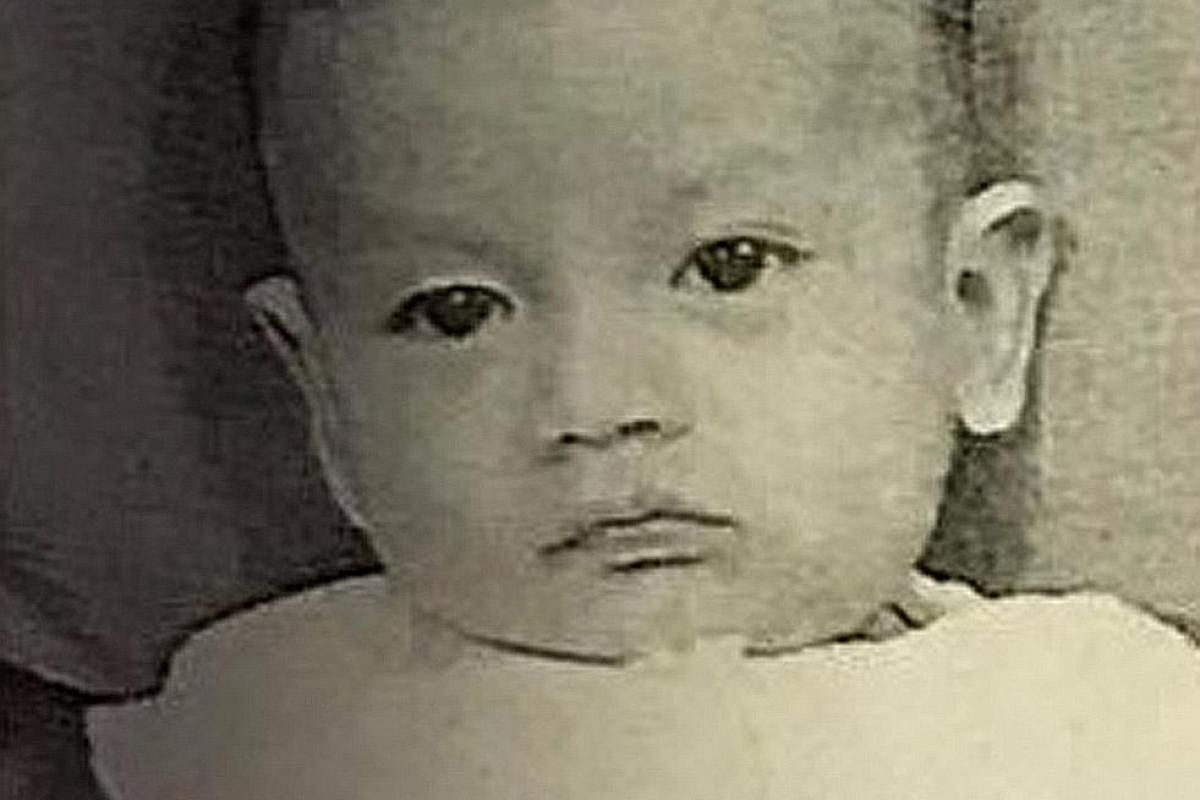
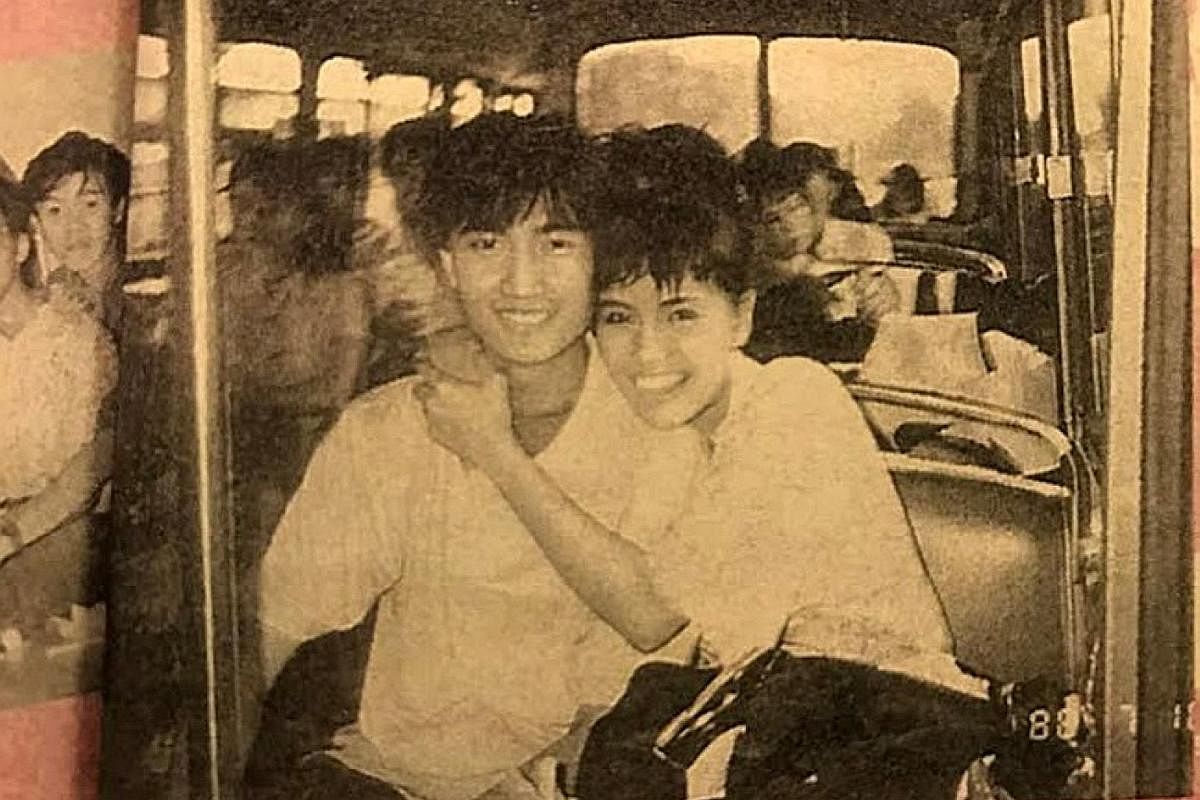
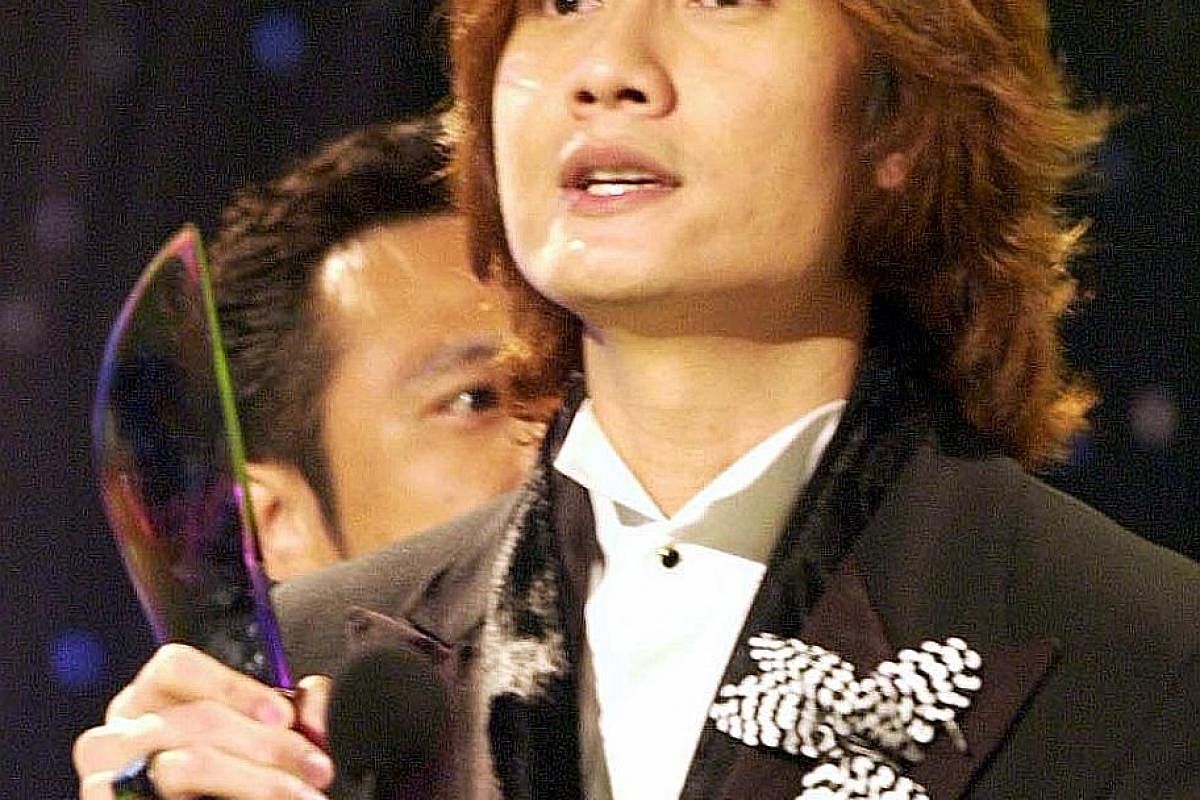
Veteran actor Chen Hanwei is a natural storyteller even when he is not telling the stories on television that others have written for him.
In this two-hour interview with The Straits Times, he is brimming with colourful anecdotes about his life and career - told in a mix of Mandarin and English with animated flailing arms and long dramatic pauses.
It is no wonder the 47-year-old Malaysian-born star is considered by many to be one of the best actors in the local TV industry.
In fact, he is the best among those still in the business, if one looked at statistics.
To date, he has four Best Actor wins at the Star Awards - local broadcaster Mediacorp's annual celebration of Mandarin television programmes - a record bested only by former actor Xie Shaoguang, who had five wins before quitting to be a monk.
Chen, who also won Best Supporting Actor at the same awards ceremony in 2015, is not shy to admit that he is forever "itching" to get another award.
"You care less about awards as you get older, but it doesn't mean that you don't care about them at all.
"The problem with getting an award is that once you get one, you really want to get another. Because when you win one, you feel pretty pleased about yourself for a few days," he says with a chuckle.
There is a high chance he could tie Xie's Best Actor record - if not at the upcoming Star Awards ceremony in April, then at a future edition in the next few years.
The odds are in his favour, not just because of his widely recognised acting talent, but also by his sheer volume of work every year.
He is often in a lead role in TV dramas back to back.
One of his shows, Hero, ended its run last week, but he is still a fixture on TV screens every weeknight in the popular long-form sitcom 118 II.
He is concurrently filming 118 II, in which he plays a dumpling hawker who studied fashion design in France, and The Lead, in which he stars as a stuntman from Hong Kong.
Fielding this interview on his rare day off from work, he muses: "I get so many roles because there aren't that many actors in my age group. How many of us are there? You can count them on one hand."
Some of the other local A-list actors in his age bracket are Tay Ping Hui, 46; Chew Chor Meng, 48; and Christopher Lee, 45.
The Johor Baru native had enjoyed singing and acting in school productions while growing up, but he always assumed he would follow in his father's footsteps and be a school teacher.
The closest he got to being a teacher was to be one on screen: His role of Fang "laoshi" - or teacher Fang in Chinese - in the series Morning Express (1995) and its sequel Morning Express II (1996) instantly shot him to the A-list seven years after he joined show business.
"I guess you can say that that role was my big break. Everyone on the streets started calling me Fang laoshi, even though I looked nothing like a real teacher with my long hair. But audiences seemed to like the look," he says with a laugh.
When he was 18, one of his friends got hold of some application forms for the local broadcaster's inaugural Star Search TV talent contest in 1988 and encouraged him to sign up together for fun.
He recalls fondly: "We went to a small photo studio to take one of those horribly amateur head shots to send in with our applications. We looked like ghosts in our make-up. I couldn't believe it when I got a call back."
He made it to the finals, but his rival-turned-best friend, Zoe Tay, took the title.
She says: "We didn't like each other at first - is it time that led me to see the real Chen Hanwei for who he is? He is kind, sincere and gives me a sense of security, like the roots of a tree. I've always said that he is like an angel to me."
He was offered an acting contract nonetheless.
However, it took him another three years before he was finally offered a lead role, as a prison warden in the drama series Behind Bars (1991).
"I did so many tiny, uncredited roles before that - it was exhausting work for very little pay-off. I was still living in Johor Baru at the time, so I would travel to Singapore and back every single day after long hours on set. I felt like quitting all the time.
"But after I did Behind Bars, I started getting bigger parts. Maybe the producers finally saw that I had some sort of X-factor," he says.
"I was just so tired. Producers are nicer now. Back then, there was one who used to slap me awake using the script. He didn't let me sleep even though I had been filming for three nights in a row," he says.
Another time, he had to film a scene under the hot sun for an entire day - shirtless and slathered in honey to attract ants for a torture scene.
An actor who sees the big picture
"People think it's very glamorous to be an actor, but it's not," he says.
He persevered as he was determined to find satisfaction in his job.
"You just want to keep trying and trying. I believed that if I kept at it, I would eventually embrace it and that it would be worth it."
He was right: In the year Morning Express aired, he was not only named one of the station's Top 5 Most Popular Male Artistes, but he was also the surprise winner of the Most Popular Male Artiste award - the No. 1 spot in the list.
The next year, he emerged once more as a Top 10 Most Popular Artiste.
The kind of media coverage he received also confirmed that he had arrived. A check in the local newspaper archives turned up dozens of articles on just his hairstyle alone.
The glossy shoulder-length locks he donned at the time became his signature look.
"I felt pretty cool. Long hair was quite trendy among idols, although not so much in Singapore. Remember Ekin Cheng?" he says, referring to the floppy-haired Hong Kong star of Young And Dangerous (1995) fame.
"Well, the hair made me feel like an idol too."
In 1997, at the height of his popularity, he shocked the public and industry alike when he suddenly announced that he was quitting acting.
Taking a pay cut of about 50 per cent, he went behind the scenes at the TV station to work as a stylist.
"I was too stressed. When you suddenly get to the top of the game like that, you realise that the people whom you thought were your friends may not be your friends anymore.
"I could feel that some people got jealous of my success and I couldn't take that kind of pressure," he says.
What he did not expect was more pressure in his new role.
In the beginning, the stylist gig was fun.
"People working in the fashion industry still saw me as Fang laoshi and they happily worked with me just because of that."
Within a year, things got competitive. "When they realised that I was going to be doing this for a while, they started asking me all sorts of questions.
"If I wanted to borrow clothes, I had to justify who and what they were for. It got harder and harder for me to get the clothes I needed."
Two years into his struggling stint as a stylist, TV producers badgered him to return to act.
After mulling over it for a long time, he decided to do so, taking it one TV drama series at a time.
That comeback eventually became full-time and it was a huge success.
Besides a number of roles in hit series such as Don't Worry, Be Happy (2000), his role as a geeky guy who has trouble finding a girlfriend in Love Me, Love Me Not (2001) won him his first Best Actor award.
"I chopped off my hair after I won the award. It took me a long time, but I finally realised something really important - actors shouldn't care so much about their own image.
"To be a good actor, you always have to put the character first. When I learnt this, acting became fun to me. I stopped seeing it as work and I felt much less pressure."
Mr Chong Liung Man, 52, a veteran producer and director who has worked with Chen for more than a decade, can attest to his change in attitude.
He says: "Hanwei has always been diligent, but he used to worry a lot about himself - how he would appear, how others would see him.
"But he is now the type of actor who sees the bigger picture. He has become extremely collaborative and will always go to his co-stars before filming to get to know them better and to discuss the roles. He makes everyone else feel at ease and I can see that he is happy too."
Perhaps, Chen's ease with himself is what helped him earn his next three Best Actor awards, for playing a man in a vegetative state in A Life Of Hope (2005); an Aids patient in By My Side (2009); and a house husband in Daddy At Home (2010).
In 2014, he also nabbed the All-Time Favourite Artiste Award, given to those who have already racked up 10 Most Popular Artiste awards.
While his career was relatively smooth-sailing, his personal life was to receive a jolt.
While on set for the series The Village Hero in 1990, he received a mysterious telephone call from an unnamed woman, who told him that the couple who raised him were not his biological parents.
After hanging up on her, he was greatly troubled.
"I went home and asked my parents, separately, where I was born. My father said at a hospital, but my mother said at home. That's when I realised something was amiss," he says.
Still, he never confronted them. "I decided that no matter what, they were my parents. I didn't care," he says.
His father is now 78 and retired, while his housewife mother is 77.
The truth finally surfaced two decades later, when he started talking about his family life on the talk show CelebriTea Break in 2009. He recounted the story of the mystery telephone call - a segment which his mother ended up watching on TV.
He says: "She finally admitted then that I was indeed adopted. She was crying. She had been scared to tell me the truth all this while because she was afraid I might leave her. But why would I ever do that? I love my parents so much."
He has no plans to connect with his biological parents, although he suspects that the mysterious caller all those years ago was his birth mother.
"I already have a family and we'll always be very close," he says. His elder sister, a pharmacy manager who is three years older, is also adopted, but from a different birth mum.
His family still live in Johor Baru, but they go on holidays together whenever they can.
His mother also comes to stay with him in his Singapore home for weeks at a time.
Chen, who is in a five-year relationship, says: "This is the best arrangement because I'm too busy with work lah. But I can't complain. Life is good."
•Follow Yip Wai Yee on Twitter @STyipwaiyee
Join ST's Telegram channel and get the latest breaking news delivered to you.
A version of this article appeared in the print edition of The Straits Times on January 16, 2017, with the headline The Life Interview with Chen Hanwei: King of Channel 8 eyes fifth Best Actor nod at Star Awards. Subscribe

